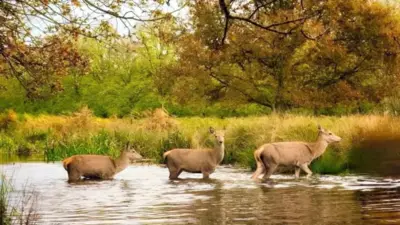We've updated our Privacy and Cookies Policy
We've made some important changes to our Privacy and Cookies Policy and we want you to know what this means for you and your data.
Protests against rail fare rises held across South West
Protests over increasing rail fares and planned cuts to services have been held at stations in south-west England, say organisers.
First Great Western said 10 campaigners handed out cards to passengers at Bristol Temple Meads, but no protesters were at Plymouth, Stroud and Swindon.
Unions said fares had increased three times as fast as wages over four years.
The train firm said its fares would not rise by more than the government's guidelines.
The protest action was planned under a TUC campaign.
Action for Rail said the Association of Train Operating Companies had announced fares would be going up by an average of 3.9% in 2013.
'Above inflation'
The cards handed to passengers said as well as fare rises and staff cuts in the new year, train travellers can "look forward" to a 2013 "packed full of cancelled trains, service cuts, and ticket office closures - all at a time when the train companies are making huge profits".
Commuters were urged to send the cards to their local MPs to tell them of their concerns over fare rises.
"This is the tenth year running now of above inflation rises, and our research shows rail fares continue to outstrip wages," said Matt Dykes, rail policy officer at the TUC.
Dan Panes of First Great Western said the protest was about the government's fares policy.
He said First Great Western was not getting the money because the fare formula meant the government paid less but the rail passenger paid more.
"We've taken on 200 extra staff this last year and have no plans to close a station," he added.
Regular rail passenger and member of the Friends of Bristol Suburban Railways group Julie Boston said: "I'm very supportive of the demonstrations.
"Our fares are the highest in Europe but the operators are in an impossible situation - they have to make profits for their shareholders.
"What we need is to take over train operations to get them into public ownership."
Top Stories
More to explore
Most read
Content is not available








